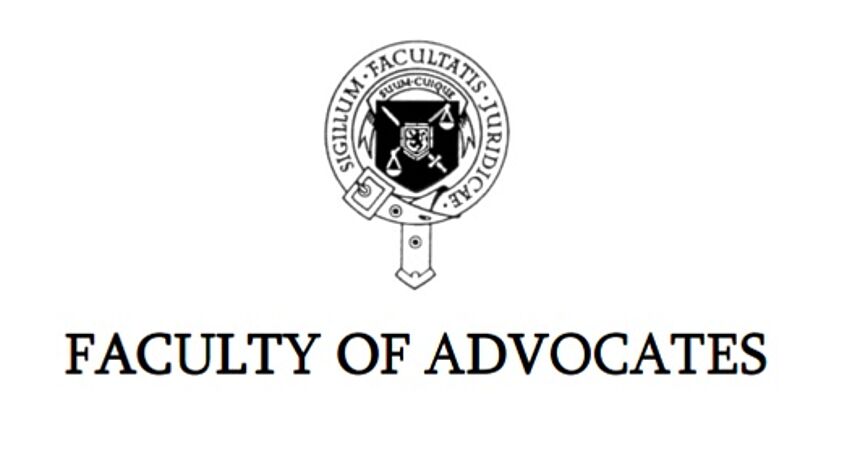
The Faculty of Advocates is the professional body to which all Advocates in Scotland belong. Its history dates back to the sixteenth century. The Faculty is responsible for: (i) prescribing the criteria and procedure for admission to the public office of Advocate and for removal from that office; and (ii) regulating the professional practice, conduct and discipline of Advocates. These responsibilities have been delegated to the Faculty by the Court of Session under the Legal Services (Scotland) Act 2010. The Faculty maintains the Advocates' Library and an extensive collect of artworks and artefacts connected with Scotland's legal history. The Faculty promotes and supports the administration of justice and the rule of law in Scotland. The Faculty is led by elected office-bearers and by an elected Faculty Council.
The Faculty is led by elected office-bearers: the Dean of Faculty, the Vice-dean, the Treasurer, the Clerk and the Keeper of the Library. The Faculty also elects the Chairman of Faculty Services Limited, a company established to provide administrative and other support services to Advocates.
Key decisions are made by Faculty Council, which comprises members elected for constituencies within the bar. Much of the Faculty’s work is undertaken by committees established for particular purposes. The Faculty Secretariat is headed by the Faculty Solicitor. The Secretariat supports the office-bearers, Faculty Council and committees in the work of the Faculty.
Many Advocates and trainee advocates carry out work for the Free Legal Services Unit (FLSU). This is part of the Faculty's long standing commitment to providing access to justice for everyone in society. The FLSU enables qualified persons to provide advice and representation to clients of accredited advice agencies (including CAS) across Scotland.
For more than 300 years, the Faculty has maintained within Parliament House the Advocates Library, often regarded as the finest working law library in the United Kingdom. The Library was formally inaugurated in 1689. From the start the collection was a general one. In 1709 the status of the collection was confirmed when Queen Anne's Copyright Act gave the Keeper of the Library the right to claim a copy of every book published in the British Isles. The collection was enhanced by purchase and donation, particularly of continental imprints and of manuscripts. The Advocates Library came to be recognised as the natural depository for literary materials of national importance. By the 1850s the Library had become in effect Scotland's national library. In 1925 the National Library of Scotland was established when the Faculty gifted to the nation its whole non-law collections comprising 750,000 books, pamphlets, manuscripts, maps and sheet music. The Advocates Library has retained the copyright privilege for law publications. In recent years the Advocates Library has expanded to take account of the increase in membership of the Faculty.
Currently, the Faculty includes practising and non-practising members. The current practising Bar includes an increasing proportion of women. Women make up approximately one quarter practising membership. Total numbers now stand at just over 460, of whom approximately one fifth are Queen's Counsel. The taking of Silk, as assumption of the title of Queen's Counsel is commonly known, depends upon the prerogative of Her Majesty. This is exercised through the First Minister of Scotland upon the recommendation of the Lord Justice General. The Dean of Faculty is consulted in the course of this process. As a general rule, silk is awarded to experienced Counsel, who are considered to have achieved distinction in full-time practice. The process of awarding silk has been the subject of some criticism.
Values
Advocates are subject to regulation by the Faculty of Advocates, under powers delegated to it by the Court of Session. The Court of Session is responsible for regulating the professional practice, conduct and discipline of Advocates under the Legal Services (Scotland) Act 2010. The Court has delegated this responsibility to the Faculty of Advocates. Rules which the Faculty makes are subject to approval by the Lord President of the Court of Session.
